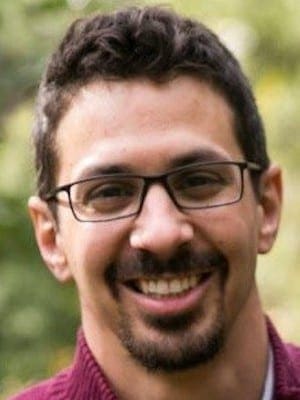Much has been made of President Donald Trump’s executive decisions temporarily banning select nationals and refugees from entering the U.S.
The order has been met with opposition in forums ranging from airport terminals to federal courts, which have so far blocked the executive decision from going into full implementation.
This ban has stirred strong feelings across the globe; there is something about singling out particular nationalities and rejecting the extremely vulnerable that simply does not sit well in the hearts of many. The topic received the Institute of Middle East Studies’ treatment here.
While I personally have been unsettled by the logic and the implications of Trump’s proposed travel and refugee resettlement ban, I see it as a comparatively small issue compared to a much larger, harsher ban that has been enduring for the better part of the past century.
It is a ban that does not simply block certain individuals from entering into a particular political nation-state but prevents individuals from formally entering into the global community of nation-states. It does not target those of a particular nationality but rather denies nationality altogether.
The ban I am most concerned about does not garner newspaper headlines or opposition in the streets and the courtrooms, but lingers unnoticed in the shadows as it holds down the lives of millions around the world.
The ban I most lament is statelessness.
A stateless person, as defined by international conventions, is anyone who “is not considered as a national by any State under the operation of its law.”
The global phenomenon renders an estimated 15 million people without any form of official nationality, or citizenship, and denies them their fundamental universal human right of nationality, according to the Institute of Statelessness and Inclusion.
Nationality is precisely fundamental because it is the right that allows us to access a host of other rights, and without it a person is effectively left “rights-less.”
The stateless exist within our world but lack the nationality necessary to provide belonging and secure protections within our political structures and institutions.
They are essentially banned from being citizens of this world and are left to struggle through life as “invisible people.”
Numerous factors contribute to statelessness, many of which are rooted in blatant discrimination.
Entire people groups are rejected by the state and denied recognition as nationals (such as the cases of the Rohingya in Myanmar and the Bedoon in Kuwait).
Gender discrimination in nationality laws denies women their right to transmit nationality to their children and can leave children without access to any form of citizenship.
Statelessness can also emerge from unfortunate circumstances, such as when marriages or births are not registered or when new nation-states are created and individuals are omitted from the emergent polity, or when children fall through the gaps of nationality laws and end up without any claim to citizenship.
Too often statelessness is inherited as stateless generation produces stateless generation.
Statelessness is never a choice; the victims are not responsible for their condition, and the majority of stateless individuals have never left their home country.
The problem is that they have never been accepted in their home countries, and no other country is willing to claim them as its own. They are effectively banned from this world.
It is not difficult to grasp the implications of statelessness. We only need to think about everything we do and every experience we have that requires some form of official identification.
All of these are either impossible or extremely complicated for the stateless. This includes:
- Attending school and university
- Gaining legal employment
- Traveling across and within borders
- Accessing health care
- Banking
- Renting, owning or inheriting property
- Legally marrying and registering children
From the cradle to the grave, statelessness impacts all areas of life and serves as the epitome of marginalization.
In the absence of rights, the stateless face a heightened risk of human trafficking, sexual and labor exploitation, unlawful detention and many other human rights violations.
Brent Hamoud is programs manager for a boys’ home in Mount Lebanon associated with Kids Alive International and oversees a literacy program in South Lebanon. He is a 2016 IMES graduate. A version of this article first appeared on the IMES blog and is used with permission. His writings also appear on his blog, and you can follow him on Twitter @ThisHamoud.
Editor’s note: This article is the first of a two-part series. Part two is available here.
Programs coordinator at the Arab Baptist Theological Seminary in Beirut, Lebanon.

